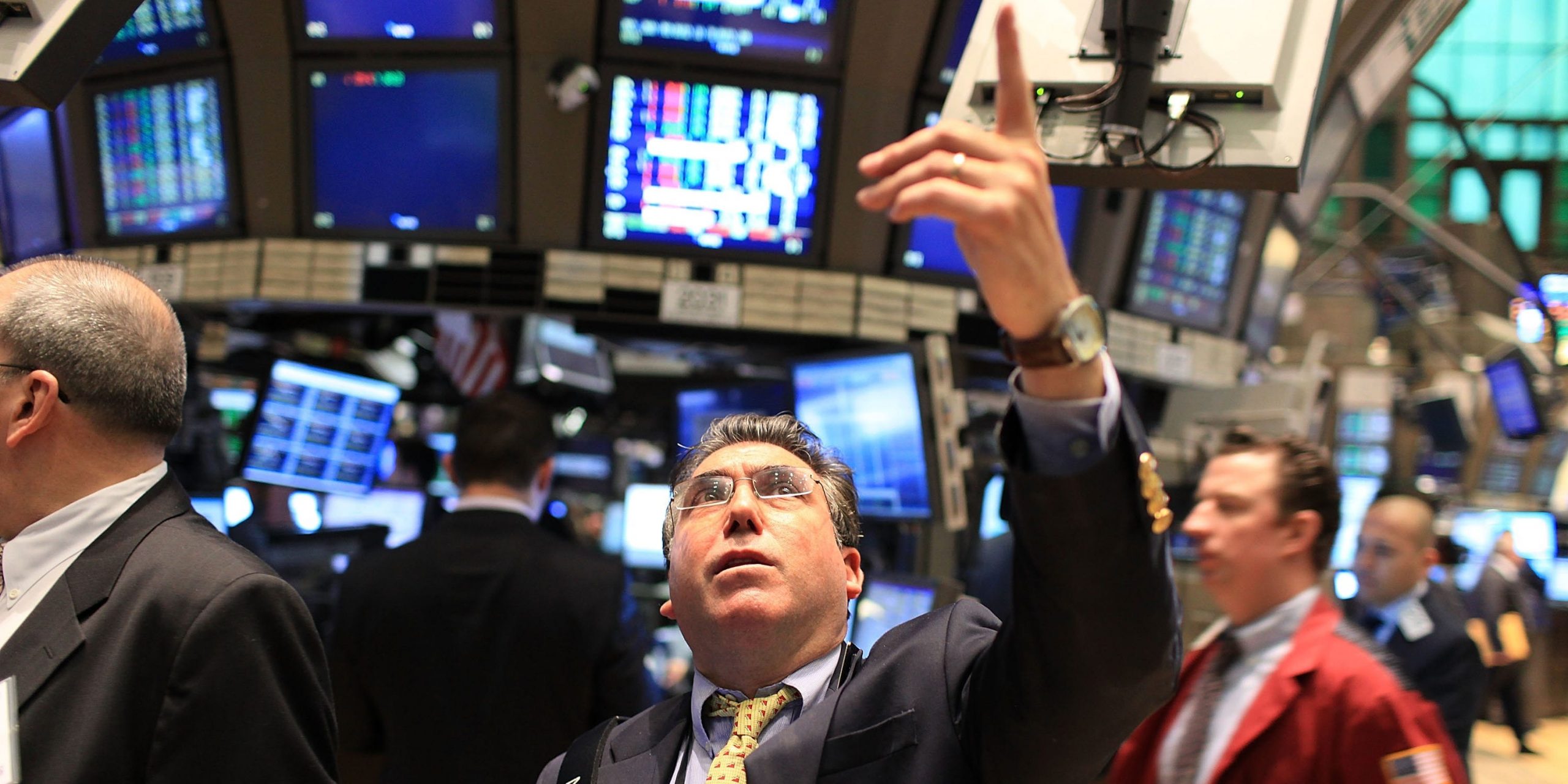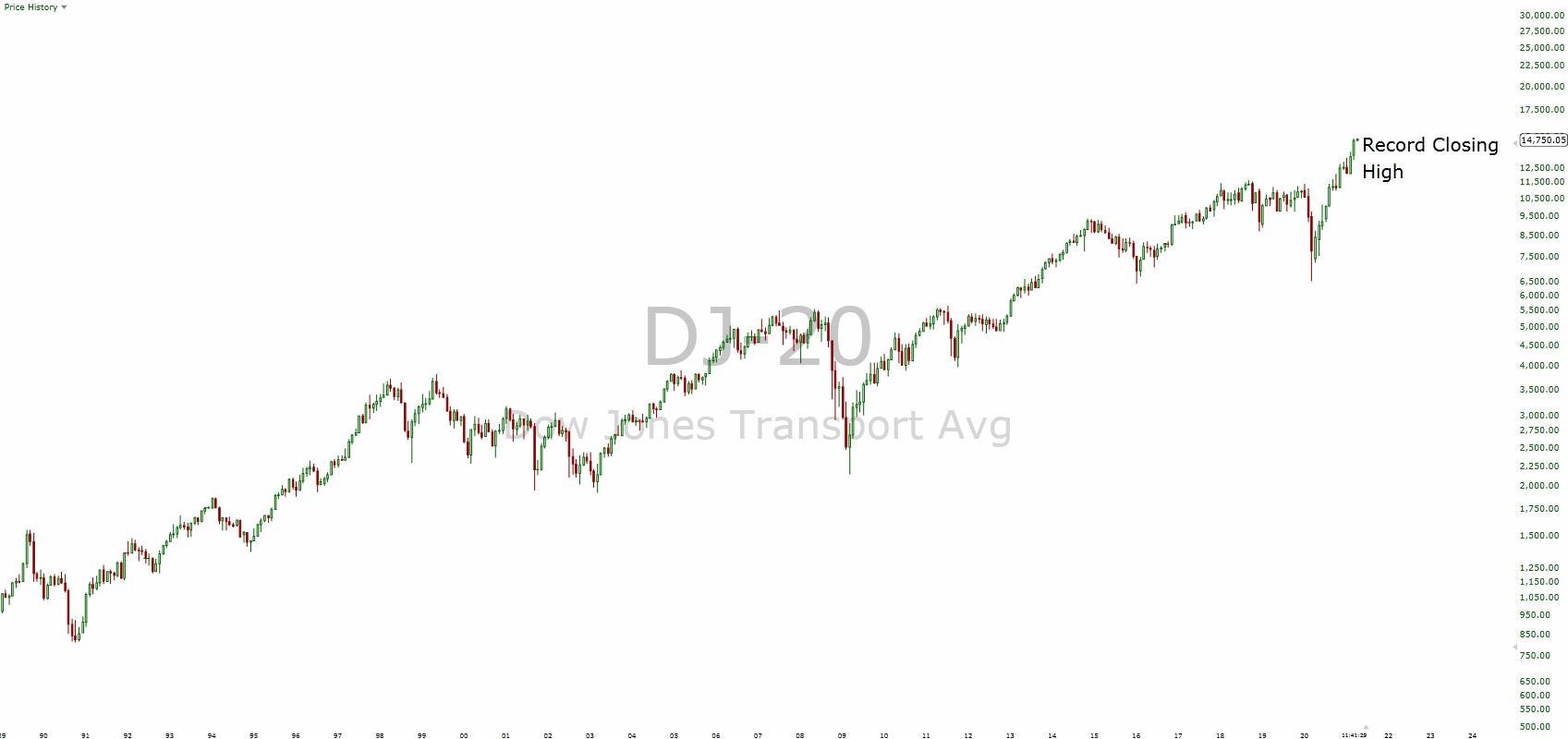
- The trend higher in the stock market is likely set to continue as one of the oldest indicators on Wall Street confirms the move higher.
- Dow Theory is based on the relative price action of the Dow Jones Industrial Average and the Dow Jones Transportation Average.
- Since mid-February, the Transportation Average has minted 14 new all-time highs, signaling more gains ahead for the broader market.
- Sign up here for our daily newsletter, 10 Things Before the Opening Bell.
One of the oldest indicators on Wall Street is signalling that the record highs made in the stock market over the past week are set to continue.
"Dow theory" is based on the writings of The Wall Street Journal co-founder Charles Dow and represents study of the intermarket relationship between the Dow Jones Industrial Average and the Dow Jones Rail Average, now called the transportation average.
The general idea is that both averages, over time, should move in tandem, given that the transportation average represents companies responsible for the movement of goods across the country. For that reason, it should serve as a leading indicator.
Put differently, both depend on each other: If the economy is thriving, transportation companies should also be thriving, as they are tasked with literally moving the economy.
Technical analysts look to Dow theory to confirm broad movements in the stock market. Specifically, traders look for confirmations and divergences between the two indexes.
A confirmation is when the transportation and industrial averages reach new highs (or lows), signaling that the trend in the broader market is up (or down). A divergence is when one of the two averages isn't moving in tandem with the other.
Since mid-February, the Dow Jones Transportation Average has minted 14 fresh all-time highs as investors anticipate strong economic growth amid a full reopening of the economy. And now, the broader stock market has finally caught up with it.
As the industrial average confirms the transportation average's record high, traders will look for the primary uptrend to continue in the stock market.
